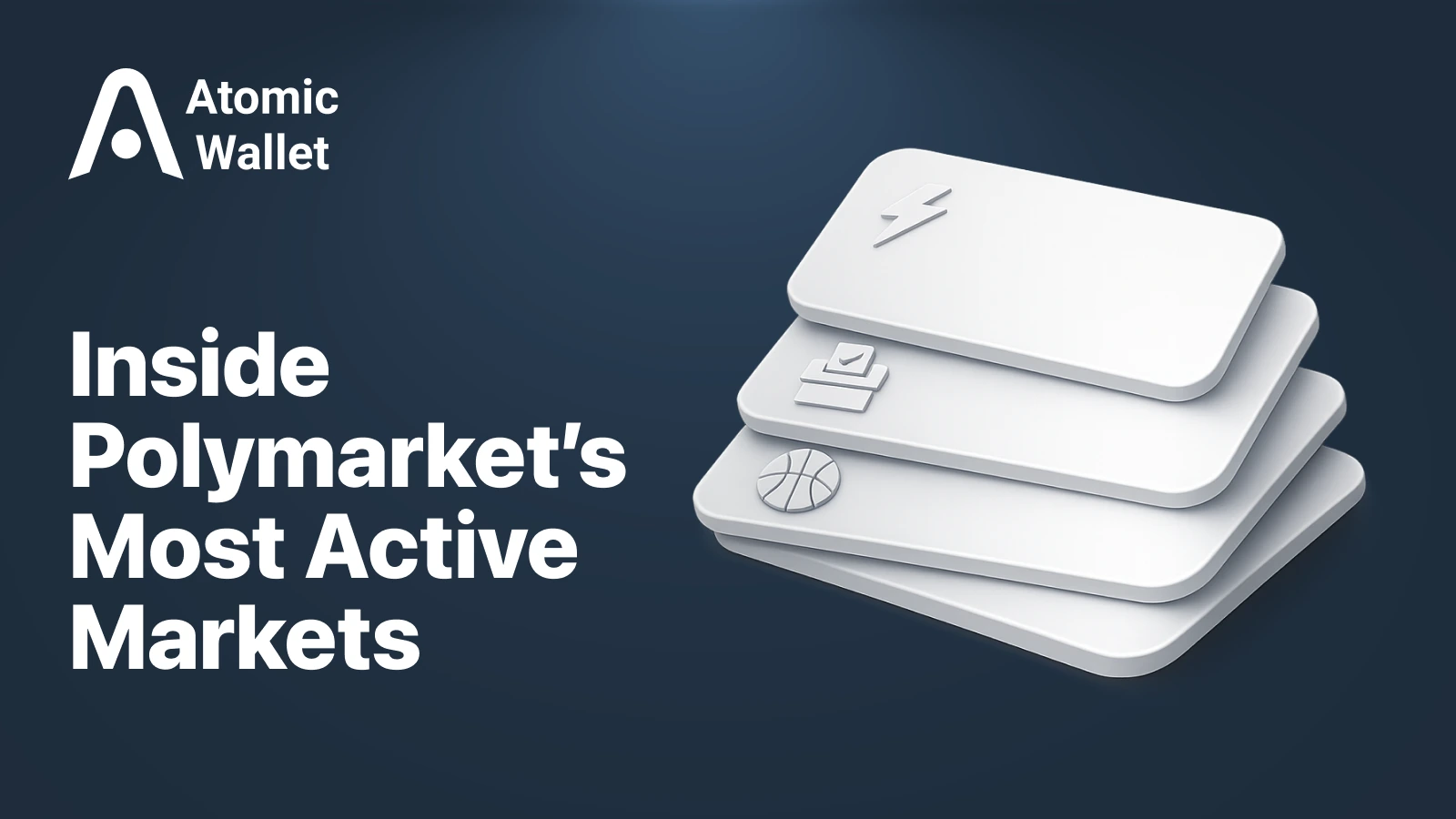Assets

Exchange

Buy Crypto

Products




The cryptocurrency landscape is continually evolving with the emergence of new technologies and platforms. One such platform that is poised to make a significant impact is ZetaChain. But what is ZetaChain? It is a decentralized blockchain platform that aims to provide secure and scalable solutions for industries like finance, supply chain, and healthcare.
ZetaChain is a California-based startup that aims to include Bitcoin in the decentralized finance (DeFi) economy. It provides a Layer 1 blockchain for developers to build decentralized apps (dApps) and access other blockchains without the need for bridges or wrapped coins.
The platform utilizes a unique hybrid consensus mechanism that combines the strengths of Proof of Stake (PoS) and Proof of Work (PoW) algorithms. This unique blend allows ZetaChain to maintain the security of PoW while significantly reducing energy consumption, making the platform more environmentally friendly.
One of the standout features of ZetaChain is its Omnichain Smart Contracts. These allow for the creation of interoperable dApps that span multiple chains, including Ethereum and Bitcoin. This means that developers can build applications that interact with multiple blockchains simultaneously, vastly increasing the potential use cases.
Further, ZetaChain is the only public, decentralized blockchain and smart contract platform that enables message passing and value transfer between any blockchain, including non-smart contract chains like Bitcoin and Dogecoin.
ZetaChain also allows developers to deploy smart contracts on the blockchain that can interact with native Bitcoin, essentially adding a smart contract layer to Bitcoin. This opens up the possibility for various applications like non-fungible tokens (NFTs) to be built on Bitcoin.
/With its unique features and visionary approach, ZetaChain is set to transform the cryptocurrency landscape. The platform's commitment to security, scalability, and interoperability positions it as a game-changer in the blockchain ecosystem. As we delve deeper into the architecture, security, and scalability of ZetaChain in subsequent sections, we will further understand how this platform is set to revolutionize the world of blockchain and cryptocurrency.

The architecture of ZetaChain is a key component that sets it apart in the landscape of decentralized networks. It leverages a unique hybrid consensus mechanism and smart contracts that enable interoperability, setting the stage for a transformative impact on the cryptocurrency industry.
At the core of ZetaChain's architecture is its hybrid consensus mechanism, which combines both Proof of Work (PoW) and Proof of Stake (PoS) algorithms. This unique blend is designed to ensure the security and efficiency of the network, providing a robust foundation for the various applications and services built on top of it.
The hybrid consensus mechanism allows ZetaChain to leverage the strengths of both PoW and PoS. PoW provides a high level of security, making it difficult for malicious actors to alter the blockchain, while PoS enhances the efficiency of the network by eliminating the need for energy-intensive mining. This innovative approach to consensus plays a critical role in enabling ZetaChain to deliver secure and scalable solutions for decentralized applications (dApps) and enterprise use cases according to Zetachain Whitepaper.
A defining feature of ZetaChain is its support for Omnichain Smart Contracts. These allow for the creation of interoperable dApps spanning multiple chains, including Ethereum and Bitcoin, thereby significantly expanding the potential applications for developers.
In addition, ZetaChain is the only public, decentralized blockchain and smart contract platform that enables message passing and value transfer between any blockchain, including non-smart contract chains like Bitcoin and Dogecoin.
Interoperability, or the ability for different blockchains to communicate and transfer data seamlessly, is increasingly recognized as a vital characteristic for the next generation of blockchain platforms. By enabling this capability, ZetaChain sets the stage for developers to create interconnected dApps and networks, thereby unleashing the full potential of the blockchain technology.
In the context of the broader cryptocurrency landscape, the hybrid consensus mechanism and smart contract interoperability of ZetaChain represent significant advancements. These features contribute to the platform's goal of providing secure and scalable solutions for various industries, thereby potentiating the transformational impact of blockchain technology on society.
Security remains one of the paramount concerns in the realm of cryptocurrency and blockchain technology. As such, ZetaChain incorporates advanced security measures to ensure the safety and integrity of its network and transactions.
ZetaChain employs advanced cryptography techniques, including the Elliptic Curve Digital Signature Algorithm (ECDSA) and Zero-Knowledge Proof (ZKP). These techniques ensure the security and privacy of transactions and data within the network.
ECDSA provides the foundation for the creation of digital signatures, a critical aspect of verifying the authenticity of transactions within the network. On the other hand, ZKP allows for the confirmation of specific information within a transaction without revealing any additional data. This mechanism enhances the privacy measures within ZetaChain, allowing users to transact with confidence.
The native token of ZetaChain, known as ZETA, plays a crucial role in maintaining the security and functionality of the network. ZetaChain enables the creation of true cross-chain Automated Market Maker (AMM) decentralized exchanges, where assets can be exchanged between different chains using smart contracts controlled by ZetaChain or through message forwarding. In the native ZetaChain smart contract method, all native assets on external chains are held in the ZetaChain Threshold Signature Scheme (TSS) account and are directly manageable by ZetaChain contracts.
Furthermore, ZetaChain enables cross-chain message passing with value/data, allowing for the safe and secure transport of messages from one chain to another. ZetaChain validators act as notaries to attest to the authenticity of events and transactions from one chain to another. This feature further enhances the security measures in place for the ZETA token and the network as a whole.
ZetaChain's advanced security measures and robust cryptographic techniques reinforce its position as a leading player in the cryptocurrency and blockchain space. By prioritizing security and privacy, ZetaChain is not only transforming how we view blockchain technology but also setting a new standard for future developments in this field.
The scalability of Zetachain is significantly enhanced through the implementation of sharding. This process involves dividing the network into smaller groups, known as shards, which have the ability to process transactions concurrently. This division of labor not only boosts the throughput but also the overall efficiency of the platform.
The ability to handle multiple transactions simultaneously sets ZetaChain apart from other platforms, making it a promising solution for the future of decentralized applications.
In addition to sharding, off-chain transactions play a crucial role in amplifying the efficiency of ZetaChain. In this setup, ZetaChain's hyper-connected nodes can monitor transactions on every connected chain, providing a seamless omnichain environment for developers. They can sign and verify transactions on every connected chain, enabling secure and decentralized read and write operations.
This off-chain feature permits developers to pass messages (data + value) between chains and layers with simple function calls. This allows them to build powerful cross-chain applications by implementing a few functions within their existing smart contracts.
Going a step further, ZetaChain enables the creation of true cross-chain AMM (Automated Market Maker) decentralized exchanges. Here, assets can be exchanged between different chains using smart contracts controlled by ZetaChain or message forwarding. In the native ZetaChain smart contract method, all native assets on external chains are held in the ZetaChain TSS account and are directly manageable by ZetaChain contracts.
With these features, ZetaChain not only facilitates an environment of heightened scalability but also fosters the development of complex and powerful applications, illustrating the transformative potential of this platform in the cryptocurrency landscape. To make a transaction you will need a ZetaChain Wallet.
ZetaChain's real-world application, signified by its partnerships and integrations, along with its growing user base and transactions, are critical indicators of its success and impact on the cryptocurrency landscape.

ZetaChain has successfully established over 200 ecosystem partnerships, according to ZetaChain's official site. This showcases the broad acceptance and implementation of ZetaChain technology across various platforms. One notable partnership includes the integration with decentralized exchange (DEX) Sushi. This integration has enabled users to swap Bitcoin across 30 networks, as Sushi deploys its Ethereum virtual machine (EVM)-compatible smart contract on ZetaChain. This supports native Bitcoins with minimal changes.
Listed below are a few significant partners and their respective roles in the ZetaChain ecosystem:
ZetaChain has also demonstrated its capacity to handle extensive cross-chain transactions. To date, ZetaChain has processed over 14 million cross-chain transactions, which signifies the robustness of its blockchain technology. Additionally, it has attracted more than 3 million testnet users, indicating a growing interest in ZetaChain's solutions.
These numbers show that ZetaChain isn't just a theoretical technology, but a functional one with considerable real-world application. Its increasing popularity among users and its ability to handle cross-chain transactions at scale propose a promising future for ZetaChain and its potential impact on the broader blockchain ecosystem.
Understanding the real-world implementation of ZetaChain is a crucial aspect of comprehending what ZetaChain is and how it is transforming the cryptocurrency landscape. The information above provides a glimpse into ZetaChain's partnerships, integrations, and its growing user base. As the platform continues to evolve, it will be fascinating to see how ZetaChain's implementation expands and its influence on the broader blockchain ecosystem.
As the cryptocurrency landscape continues to evolve, ZetaChain is poised to play a significant role in shaping the future of blockchain technology. Let's explore the company's funding and future plans, and its potential impact on the decentralized finance (DeFi) and blockchain ecosystem.
ZetaChain has secured strong financial backing, which is a testament to the faith that investors have in its potential. The company raised a sizable $27 million in their Series A funding round in August 2023. Esteemed investors in this round included Jane Street Capital, Blockchain.com, and Sky9 according to TechCrunch.
ZetaChain aims to revolutionize the DeFi economy by providing a Layer 1 blockchain. This will enable developers to build decentralized apps (dApps) and access other blockchains without the need for bridges or wrapped coins.
One of its key goals is to deploy smart contracts on the blockchain that can interact with native Bitcoin, essentially adding a smart contract layer to Bitcoin. This will facilitate the creation of applications such as non-fungible tokens (NFTs) on Bitcoin.
ZetaChain is positioned to have a transformative impact on the DeFi and blockchain ecosystem. The company has already integrated with decentralized exchange (DEX) Sushi, enabling users to swap Bitcoin across 30 networks. Sushi has deployed its Ethereum virtual machine (EVM)-compatible smart contract on ZetaChain, thus supporting native Bitcoins with minimal changes.
In addition to its partnership with Sushi, ZetaChain has also integrated with centralized exchange OKX's self-custodial wallet. This allows users to access dApps on various networks and use their Bitcoins in dApps without the need for wrapping or bridging from the Bitcoin network itself.
By enabling seamless integration of Bitcoin with DeFi and other blockchain networks, ZetaChain is playing a pivotal role in expanding the scope of Bitcoin beyond a store of value or a digital currency. It is transforming Bitcoin into a versatile and powerful tool for developers to build innovative applications and services. This points to a future where Bitcoin can play a much larger role in the DeFi and blockchain ecosystem, as a base layer for a wide range of dApps and services.
In summary, the future looks bright for ZetaChain, with robust funding and innovative plans that could potentially reshape the cryptocurrency landscape. As the company continues to evolve and grow, it will be exciting to see how its developments contribute to the broader DeFi and blockchain ecosystem. For more information on other blockchain technologies, check out our articles on SEI, CoreDAO, Chelee, Mantle, Neon, and Manta Network.

Explore the most active and profitable Polymarket categories in 2026. Learn how politics, sports, crypto, AI, and macro markets differ by liquidity, volatility, and risk — and why category choice matters as much as prediction.

Learn how sports betting with crypto works on Polymarket. See how prediction markets differ from sportsbooks, how to read odds as probabilities, explore top markets by volume, and understand the risks before trading.